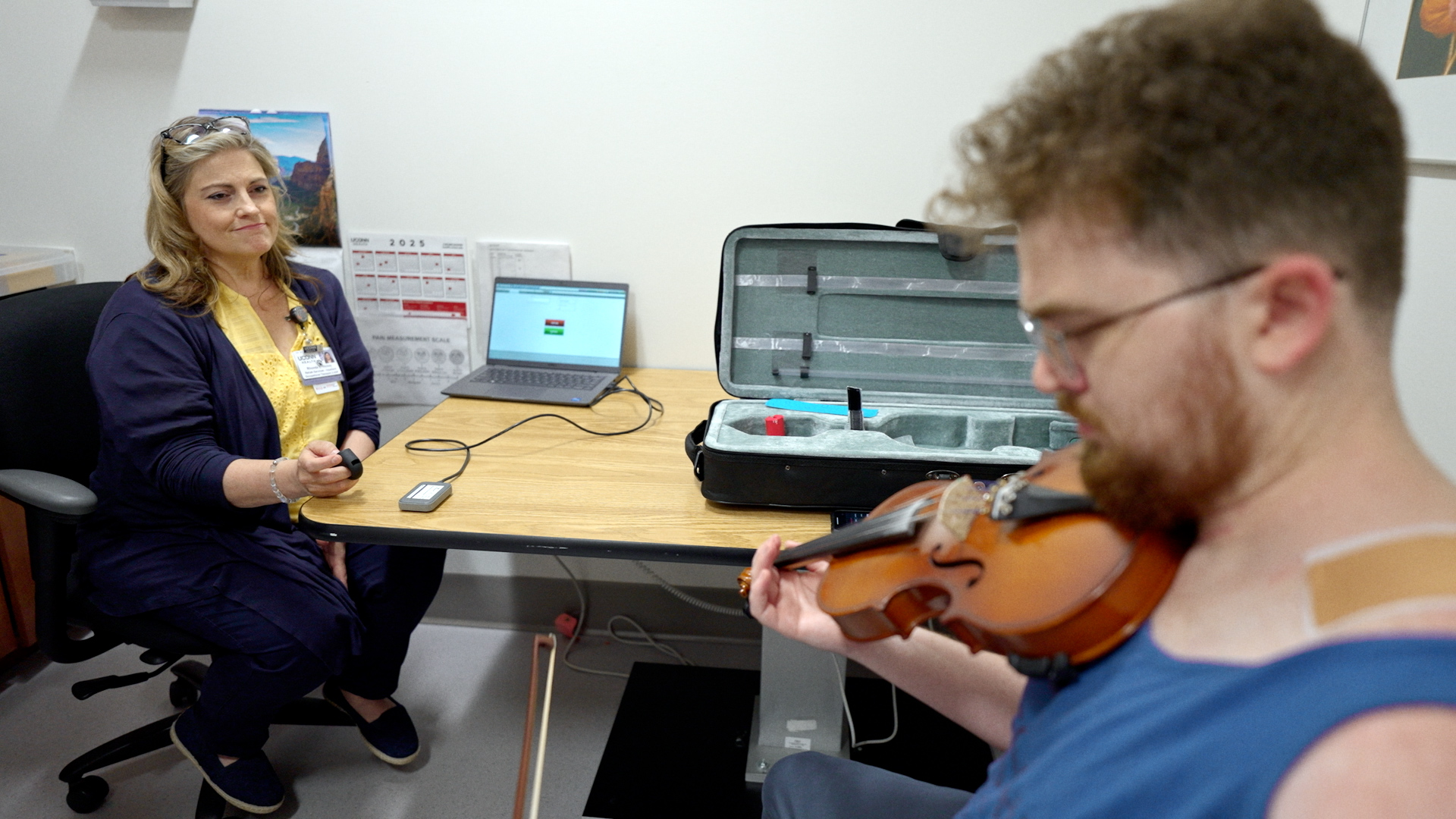Close to 100 researchers convened at the Mark Twain House & Museum in Hartford last week for the inaugural UConn Health Brain Research Symposium.
The cross-campus event aimed to bring together researchers from UConn’s many campuses to foster collaboration and highlight innovative research in clinical and basic neuroscience and psychological sciences. Guests included researchers from a variety of disciplines, such as neuroscience, psychiatry, kinesiology, neuroimaging, gerontology, and pharmacy with expertise in brain-related research.
“Between UConn, UConn Health, and our collaborators like Hartford Hospital, there is a lot of potential for synergy,” says Dr. Bruce Liang, dean of UConn’s School of Medicine. “We have collective strength in the neural space and are very interested in making this a robust research partnership.” The UConn School of Medicine and Office of the Vice President for Research co-sponsored the event.
“UConn Health and Hartford Hospital have a long history of collaboration, but this conference was an exciting way to put faces to names,” says Liz Roper, director of research at Hartford Hospital. “We have diverse and complementary strengths that, when combined, lead to innovative research and therapies for our patients.”
Since former President Barack Obama established the BRAIN Initiative (Brain Research through Advancing Innovative Neurotechnologies®) in 2013, integrated approaches to human neuroscience has been a top funding priority. Managed by the National Institutes of Health, the BRAIN Initiative “aims to develop and apply cutting-edge technologies to create a dynamic picture of the brain in action, providing the critical knowledge base for researchers seeking new ways to treat, cure, and even prevent brain disorders.”
During the day-long event, nearly 30 scientists and clinicians “pitched” their current research projects to peers in hopes of finding new team members and collaborators.
“You can learn a lot about research projects by looking at your computer, but there’s no substitute for face-to-face interactions to spark collaborations,” says Dr. David Steffens, chair of UConn Health’s Department of psychiatry and conference organizer. “The spirit of this event is to get all of these people talking, partnering on projects, and ultimately working to better understand and find treatments for diseases and conditions related to the brain.”
Several presenters hailed from UConn Health’s Department of Neuroscience, including new department chair, Riqiang Yan, PhD. Yan joined UConn Health from the Cleveland Clinic last spring. Along with leading the department, he also established the UConn medical school’s first research laboratory dedicated to the discovery of new treatments for Alzheimer’s disease and other forms of neurodegenerative disease.
The Department of Psychiatry also had ample representation, with presentations on the role of exercise to increase gait speed, memory, and cognitive reserve in older adults from Dr. Lihong Wang. Damion Grasso, PhD, and Margaret Briggs-Gowan, PhD, presented on two projects both dealing with pediatric trauma exposure and related impairments.
Many researchers traveled from Storrs for the event. Gerry Altmann, PhD, professor of psychology and director of the Connecticut Institute for the Brain and Cognitive Sciences (IBACS), was a conference co-organizer who was instrumental in identifying faculty participants from Storrs.
Some of these scientists hailed from disciplines less traditionally associated with brain research, such as biomedical engineering. Sabato Santaniello, PhD, studies neuromodulation, brain-computer interface, and computational neuroscience. Martin Han, PhD, is specifically interested in implantable microelectrode arrays, Bio-MEMS (MicroElectrodeMechanical Systems), and foreign-body response to neural implants.
Researchers more focused on the mind were also at the event to seek collaborators. Letitia (Letty) Naigles, PhD, broadly studies first language acquisition in children, and Emily Myers, PhD, described her research exploring neural plasticity for speech perception.
Dr. Ketan Bulsara, professor and chief of Neurosurgery at UConn Health also reminded attendees of the clinical importance and implications of the basic and translational research discussed at the event.
“As clinicians, we all have a very vested interest in research to improve the quality of care for our patients,” says Bulsara. “We will never be satisfied with the status quo. I can only continue to take the best care of my patients if we continue to optimize our care. Translational research is the way to make that happen.”
UConn Health officials expressed a desire and commitment to host the event annually to further foster collaboration between brain researchers at UConn, UConn Health, and partner institutions. The inaugural Brain Research Symposium complements several Meet & Speak events hosted by the IBACS, which serves as a hub for innovation in the interdisciplinary science of the mind and brain at UConn.



